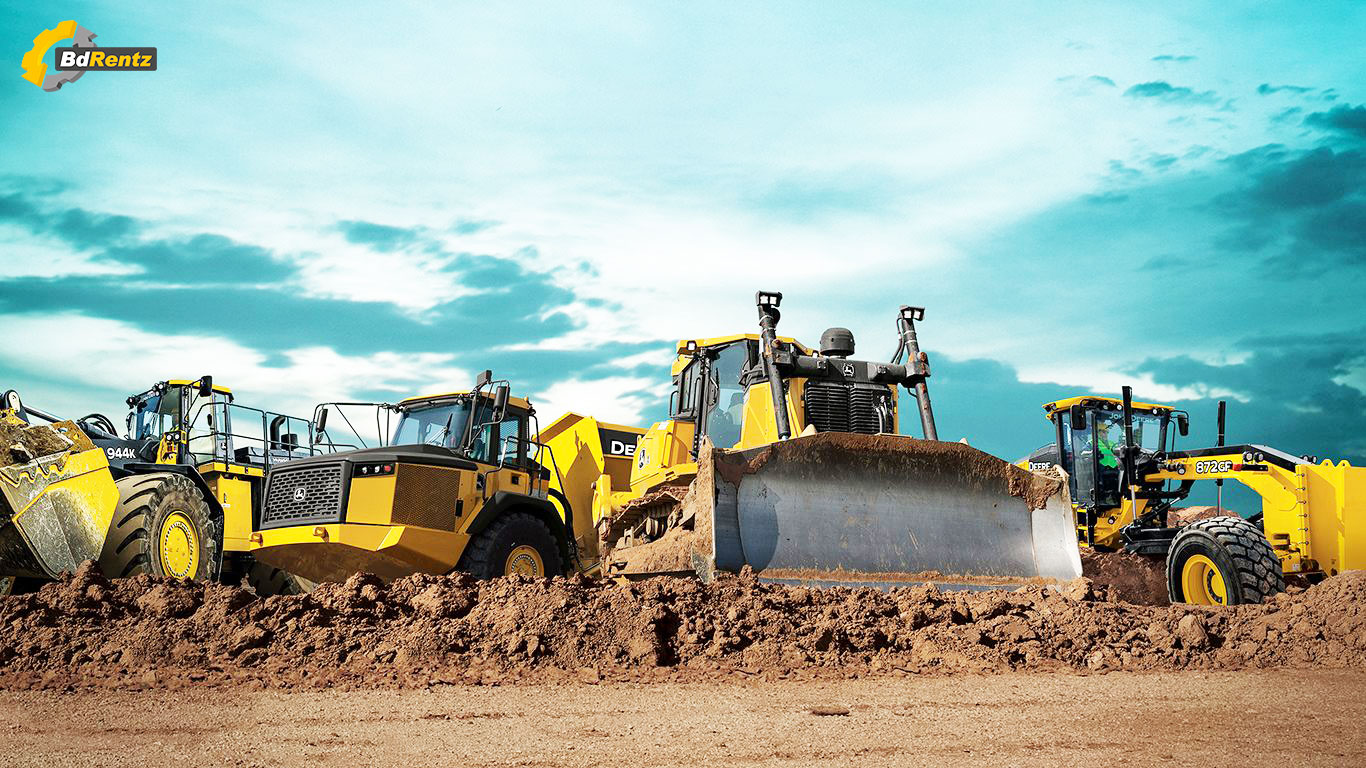Mini Excavator Rental: Compact Machines for Strict Spaces
Mini Excavator Rental: Compact Machines for Strict Spaces
Blog Article
Optimize Your Budget Plan by Understanding the Prices Linked With Building Equipment Services
Recognizing the full scope of expenses connected with building and construction devices services is critical for maximizing your spending plan. What methods can be used to effectively handle these prices and ensure a much more efficient rental experience?
Introduction of Rental Costs
When taking into consideration building tools leasings, understanding the connected costs is vital for effective budgeting and task planning. Rental expenses can vary substantially based on a number of factors, including tools type, period of rental, and place. The first rental charge usually shows the tools's market demand and its connected functional capabilities, affecting the total expense.
In enhancement to the base rental price, ancillary expenses might occur, such as transport costs, fuel surcharges, and upkeep charges. It is important to make up these additional costs to properly assess the overall expense of renting equipment. Moreover, the rental duration can influence pricing; longer leasings may certify for affordable prices, while temporary services might incur higher everyday fees.

Break Down of Rental Rates
A comprehensive understanding of rental rates is crucial for service providers and task supervisors aiming to optimize their budgets. Rental prices for building and construction devices usually include several parts, consisting of base rates, time-based costs, and use charges.
Base rates are the core costs related to the rental of the tools, usually figured out by the type and dimension of the equipment. These rates can differ substantially, influenced by variables such as devices demand, schedule, and local market trends. Time-based costs, which may be daily, weekly, or monthly, offer to fit different job timelines and rental durations.
In addition, rental rates might include use charges, which are applicable when tools is utilized past a specified limit, guaranteeing that the rental firm can represent wear and tear. Seasonal need fluctuations can likewise affect rental prices, with peak construction seasons normally commanding greater costs.
Additionally, comprehending the rental business's policies regarding maintenance and insurance coverage can offer more insight right into the overall expense framework. By evaluating these parts, professionals can make enlightened decisions, making sure the option of rental equipment lines up with both task requirements and budget plan restraints.
Additional Charges to Take Into Consideration
Understanding the complexities of additional charges is important for service providers to handle their total service expenditures effectively. Past the standard rental rates, various additional charges can considerably impact the total cost of equipment rental. These fees often include distribution and pick-up costs, which can differ based on distance and logistics involved in transporting the equipment to and from the work website.
Additionally, some rental business may impose gas additional charges if the devices is returned with much less fuel than when rented. It is also important to understand potential cleansing costs, especially for specialized equipment that calls for complete maintenance after use.

Extensively evaluating the rental contract and making clear these added charges in advance can assist specialists stay clear of unforeseen expenses and ensure that budget plans remain undamaged throughout the job lifecycle.
Upkeep and Repair Work Expenses
Routine upkeep and repair work expenditures are commonly overlooked aspects that can considerably affect the overall expense of building and construction devices services. When renting devices, it is crucial to think about not just the rental fees however additionally the potential expenses connected with keeping the machinery in optimal operating problem.
Several rental companies consist of standard maintenance as part of the rental contract; nonetheless, more unforeseen failures or extensive repair work can cause added expenditures. It's important to evaluate the rental contract very carefully to recognize what upkeep solutions are covered and what responsibilities fall on the renter.
Additionally, devices that is not well-kept can cause inadequacies on duty website, possibly raising and creating hold-ups task prices. To minimize these threats, it is advisable to perform normal examinations and maintain open communication with the rental provider regarding any type of concerns that occur throughout usage.
Insurance Coverage and Obligation Expenses
Insurance and liability prices are critical parts that can dramatically affect the general expense of construction equipment services (dozer rental). These costs make certain that both the rental firm and the client are protected from possible monetary losses arising from crashes, cheap excavator for sale damage, or burglary during the rental period

In addition, clients must know any type of deductibles or exemptions in directory the insurance plan, as these can affect prospective out-of-pocket expenditures. Understanding the terms and problems of any kind of insurance protection is vital to prevent unanticipated costs. Eventually, budgeting for insurance coverage and responsibility expenses can assist make sure a smoother rental experience and protect against monetary threats associated with building jobs.
Verdict
In verdict, a detailed understanding of the expenses connected with construction tools services is necessary for reliable spending plan administration. Ultimately, informed decision-making pertaining to devices rentals adds to the general success of building endeavors.
Rental prices can vary significantly based on numerous aspects, including tools type, duration of leasing, and location (boom lift rental). The rental duration can impact rates; longer leasings might qualify for affordable rates, while temporary leasings might sustain higher day-to-day charges
By performing extensive study and engaging with reputable rental business, contractors can properly navigate the intricacies of rental rates, eventually optimizing their financial sources.
Past the conventional rental prices, various extra charges can substantially impact the overall price of equipment rental. Rental business often provide responsibility insurance that covers injuries to 3rd events or damage to property, while devices damages insurance coverage can cover the expense of repair services or replacement if the rented out tools click here for info is damaged.
Report this page